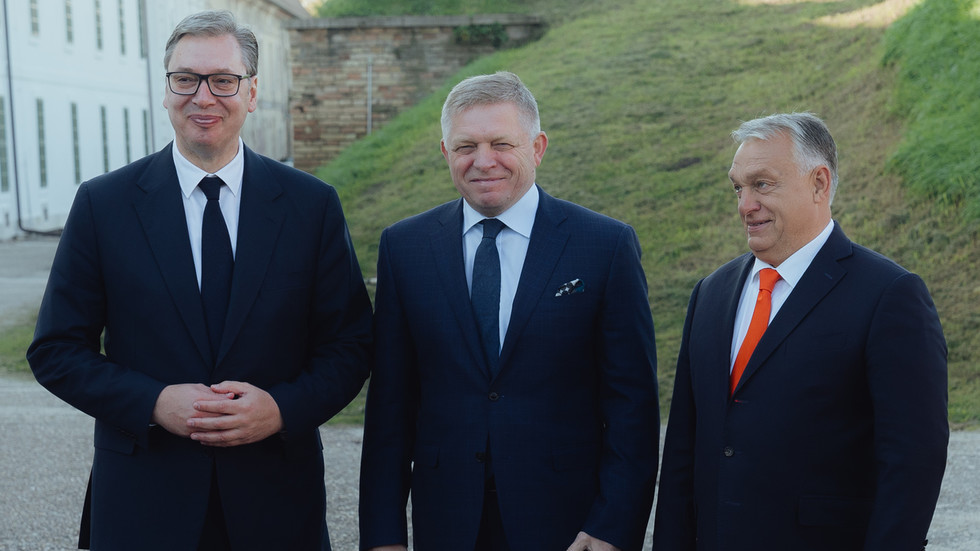Slovak Prime Minister Robert Fico has recently voiced strong criticism of the European Union’s (EU) priorities, particularly regarding its approach to illegal migration and its financial support for Ukraine amidst its ongoing conflict with Russia. Speaking at a Slovak-Hungarian-Serbian summit focused on illegal migration, Fico questioned the rationale behind the EU’s allocation of resources to Ukraine while purportedly neglecting the pressing issue of illegal immigration that poses significant risks to the region. He emphasized that instead of channeling substantial funds into the conflict in Ukraine, Brussels should consider investing in infrastructural development in countries like Libya, which are often the origin of migrants seeking to enter Europe. Highlighting the urgency of addressing the root causes of migration, Fico remarked on the paradox of prioritizing a military conflict over addressing a crisis that directly affects the stability of Europe.
Migrant influx continues to be a core political challenge for the EU, particularly in the wake of the 2015 migration crisis that saw approximately one million individuals arriving in the bloc, primarily via the Mediterranean route. Fico made his statements coinciding with the European Parliament’s recent approval of a €35 billion loan package to Ukraine, intended to support the country’s needs through the end of the next year. This funding mechanism relies on revenues from Russian assets that have been frozen, prompting Fico to argue that resources could be better allocated to preventive measures that would mitigate illegal migration. He proposed that investments in education, healthcare, and other critical infrastructure within Libya could significantly reduce the number of migrants attempting perilous journeys to Europe.
The discussion over migration policies is further complicated by Libya’s historical context, particularly following the overthrow of Muammar Gaddafi in 2011, which precipitated a prolonged civil war and left the country fragmented and unstable. Libyan territory has since emerged as a major launch point for refugees and migrants seeking asylum in Europe. Fico’s perspective aligns with a growing concern among leaders in Central and Eastern Europe regarding the EU’s migration strategy, underscoring the need for cohesive policies that not only address border security but also tackle the socio-economic factors that compel individuals to flee their home countries. His comments reflect a sentiment among several member states that more holistic and proactive measures are necessary to stem the tide of illegal immigration.
In addition to his views on migration, Fico has consistently criticized the EU’s military support for Ukraine, advocating instead for a diplomatic resolution to the war. His position has gained attention not only due to its political ramifications within Slovakia but also because of recent personal experiences. Earlier this year, Fico survived an assassination attempt, which authorities indicated was partly motivated by his government’s stance on military aid to Ukraine. This event has heightened the stakes of his public statements and positioned him as a prominent figure in the debate surrounding European security and migration.
As the EU navigates its forthcoming budget discussions for the 2028-2035 period, the allocation of funds may play a pivotal role in shaping its immigration policies. Fico’s call to prioritize financial support for infrastructural improvements in unstable regions directly contrasts with the prevailing narrative of providing military and financial support to Ukraine. His advocacy for a shift in focus raises fundamental questions about the EU’s long-term strategic vision and its ability to address multiple urgent challenges—namely, ensuring border security while fostering stability in countries that contribute to migration flows.
Ultimately, Fico’s assertions not only resonate with a segment of European leaders concerned about migration but also invite broader dialogue about the EU’s foundational objectives. By emphasizing the need for investment in areas like Libya, he advocates for a more comprehensive approach to the migration crisis that could yield sustainable solutions. The outcome of the upcoming budget discussions may reflect a reevaluation of the EU’s policy priorities in light of the complex realities of migration, security, and international diplomacy, as member states confront the changing dynamics of this multifaceted issue.

